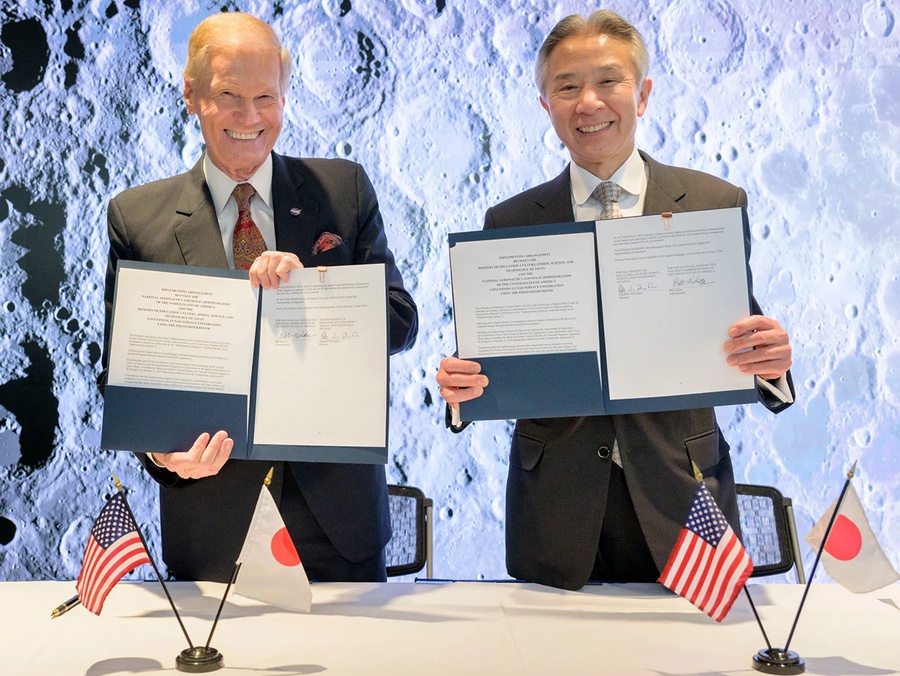The collaborative project was announced by NASA Administrator Bill Nelson and Japan’s of Education, Culture, Sports, Science and Technology (MEXT) Masahito Moriyama.
Under the agreement, Japan will design, develop, and operate the rover which will be used for both crewed and uncrewed missions on the Moon. This rover will facilitate enhanced travel and longer work periods on the lunar surface while being able to house two astronauts for up to 30 days. Its first deployment is scheduled for the Artemis VII mission and it is expected to be operational for approximately 10 years. Additionally, as a part of the agreement, NASA has committed to providing launch services for this rover and including Japanese astronauts in future lunar missions.
The partnership was further underscored during a bilateral announcement with U.S. President Joe Biden and Japanese Prime Minister Fumio Kishida expressing their shared goal of having a Japanese astronaut as one of the first non-Americans on the Moon under an upcoming Artemis Mission. Through this joint effort, both leaders emphasize advancing space cooperation between their nations as a step towards more inclusive and extensive lunar exploration.
The rover itself promises robust capabilities; planned to function as both a mobile habitat and scientific laboratory. Set specifically for operations around the lunar South Pole, its design allows astronauts to travel farther across the lunar surface than ever before. This aligns with Artemis Program goals such as landing the first woman and person of color on the Moon, involving an international partner astronaut directly in an Artemis mission, achieving new scientific milestones, and exploring greater expanses of the moon than previously attempted.
Source: NASA


